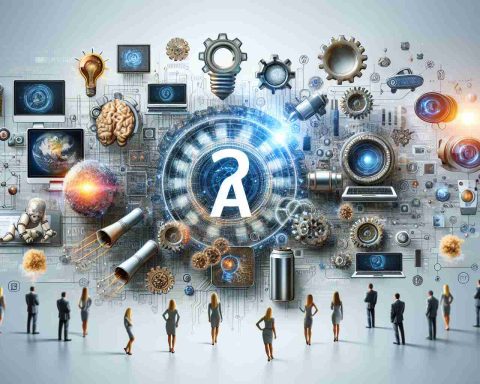The global electricity demand growth rate, previously projected to stabilize at 2.6% in 2023, is now expected to rebound to 4% annually between 2024 and 2025. This surge in demand can be attributed to record-breaking temperatures caused by climate change and the rising use of artificial intelligence (AI).
According to a recent ‘Interim Report on Electricity’ published by the International Energy Agency (IEA), global electricity demand is forecasted to increase by approximately 4% each in 2024 and 2025. Despite a spike to 6.5% in demand growth in 2021 as industries recovered post-pandemic, the rate had stabilized at 2.6% in 2023 after averaging 2.5% from 1991 to 2023.
Renewable energy sources such as hydro, solar, wind, and others are projected to contribute 35% to electricity generation by 2025, surpassing coal’s share of 35% for the first time. However, due to the global surge in electricity demand, total coal usage is expected to remain steady.
The soaring global electricity demand, driven by the record rise in average global temperatures and advancements in the AI industry, has already led to increased power consumption due to early heatwaves worldwide.
Countries like India, China, Europe, and the United States are set to witness significant increases in electricity demand due to extreme weather conditions and industrial progress. This surge in demand is further fueled by the rapid growth of data centers, primarily by global tech giants and financial institutions investing in AI technologies.
Addressing the escalating power consumption, companies like Google and Microsoft are taking steps to mitigate their environmental impact by purchasing carbon offsets and reducing emissions. However, the upward trajectory of electricity consumption remains inevitable.
IEA’s Executive Director, Sadamori Keisuke emphasized the dual role of electricity in the economy and the substantial impact of climate change-induced heatwaves, stressing the urgent need for a higher penetration of clean energy sources to meet international energy and climate goals.
The IEA’s report highlights the necessity to impose stricter energy efficiency standards, especially in cooling systems like air conditioners, to curb the rising electricity consumption caused by increasing cooling needs worldwide.
The projected surge in global electricity demand, primarily fueled by climate change and AI usage, poses crucial questions and challenges for the future:
1. How will the energy industry meet the escalating electricity demand while transitioning to cleaner energy sources?
Answer: The transition to renewable energy such as hydro, solar, and wind power is essential to meet the rising demand sustainably and combat climate change.
2. What are the key challenges associated with balancing electricity consumption and environmental impact?
Answer: Balancing the rapid growth in electricity demand with reducing carbon emissions and mitigating environmental impact presents challenges in achieving sustainability goals.
Advantages:
The shift towards renewable energy sources offers opportunities for cleaner electricity generation, reducing reliance on fossil fuels and mitigating the effects of climate change.
Disadvantages:
Maintaining a balance between meeting the increasing electricity demand and environmental sustainability goals poses challenges, especially in regions heavily reliant on coal-powered electricity generation.
Related Links:
International Energy Agency Website

















